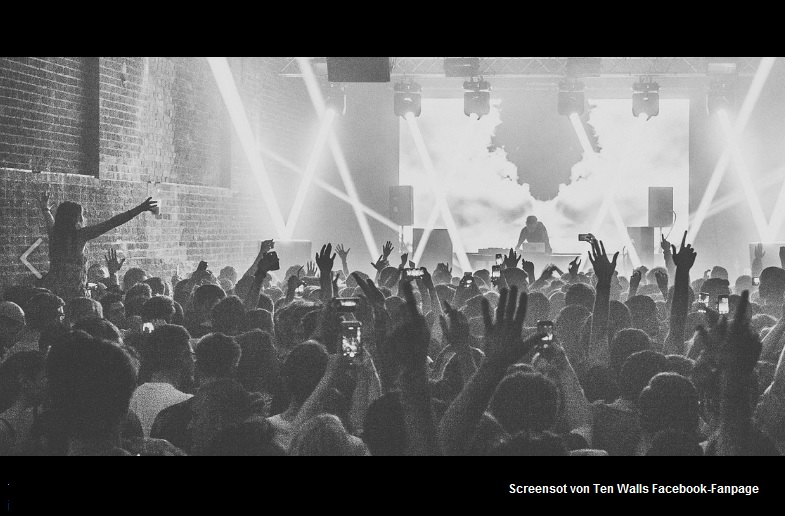DJ and producer Marijus Adoamitis, better known as Ten Walls, underestimated two fundamental facts this summer: the power of social media and the solidarity of the electronic music scene. A retrospective analysis.
What had happened? Over the last two years, Ten Walls had made a name for itself in the electro and gay scene with productions such as "Requiem" and "Walking with Elephants" and numerous bookings for festivals and clubs followed. In other words, things were going extremely well for Adoamitis. That has been over since 3 June. In a homophobic Facebook post, Ten Walls referred to homosexuals as "people of a different race" and linked homosexuality to paedophilia. With this action, the Lithuanian virtually ended his own career overnight.
His post was met with a huge shitstorm - from fans and fellow artists alike. Within a very short space of time, many of his gigs were publicly cancelled, collaborations with other artists were terminated and calls were made to boycott his music. In response, the homophobic artist issued a half-hearted apology and cancelled his entire upcoming tour. Whether he resigned himself to the public's reactions or started an attempt to pick up the pieces of his career - who knows. What is certain, however, is that the Ten Walls case is unique in its course.
Ten Walls was not the first artist to make homophobic remarks, but ...
There have been other artists before him who have made homophobic remarks, such as Chris Brown, Paris Hilton and Tracy Morgan. They were also criticised for this, but only got away with a scratch on their image. So why was the reaction from fans, colleagues and organisers to Ten Walls so much more drastic?
It is probably a combination of 3 factors:
- The timing of the post:
In May and June of this year in particular, the topic of homosexuality was on everyone's lips due to the opening up of same-sex marriage in Ireland and the USA and the associated debate. The debate was characterised by a large solidarity movement. There is certainly no "good moment" to come out as a homophobe - but this was certainly the worst moment.
- Der blatant content of the post
For comparison: Chris Brown was criticised for using the word "gay" as a swear word. Of course, that's not good either. Ten Walls, on the other hand, went one better: with his post and the conflation of homosexuality and paedophilia, he unequivocally expressed his misanthropic attitude towards the LGBT community.
- The great solidarity within the electronic music scene
The fact is that the electro scene emerged in and from the gay scene. Solidarity and acceptance have been a central component of techno culture since its inception and are still an integral part of the genre despite progressive commercialisation. It is therefore not surprising that the reaction to a homophobic member of the scene is correspondingly violent.
What remains of the Ten Walls case?
In any case, the electronic music scene has impressively demonstrated that it has not forgotten its core values and origins. Of course, some of those involved in the shitstorm could be accused of hypocrisy - especially as the cancellations from the organisers only came after the public outcry. In the end, however, what counts is how consistently an obviously completely unacceptable opinion was reacted to - and the reaction to Ten Wall's Facebook post may have been many things, but it was not inconsistent.
Comeback plans
Despite the lasting damage to his image, Marijus Adoamitis is planning a comeback soon. Things had gone quiet around him until the beginning of October. Now, however, Ten Walls has returned to his fans with a more detailed letter of apology in which he professes to be very sorry for his statements. He also announced a collaboration with an electronic opera on the acceptance and tolerance of LGBT groups in Lithuania. The next few months will show whether Ten Walls can regain a foothold in the electronic music scene.
http://www.groove.de/2015/06/08/ten-walls-homophober-facebook-post-loest-proteststurm-aus/










